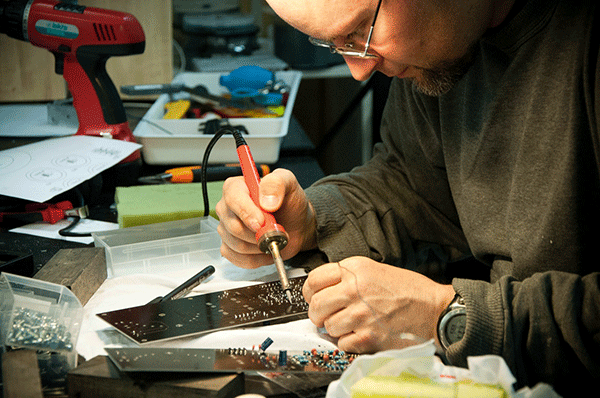After Christmas gift hunting, you’d think ‘shopping fatigue’ would kick in but January heralds the desperate rush to bag a bargain in the January sales.
Online more than in person, it can be an opportunity to buy something much needed for less, but the fact the latest, newest model is out always means last year’s stock must be discounted is problematic.
Most of us end up buying things we don’t actually need, or much sooner than we need them, tempted by an irresistibly huge discount.
The concept of ‘buy well, buy once’ feels like it is long gone as shoppers are driven more by desire and trends than choosing something that has less impact through greater longevity, but change is happening slowly.
With ‘white goods’ the Right to Repair has been legislation since July 2021, aimed at stopping built-in obsolescence. But who has even heard of it? And what does it mean?

The UK rules only apply to fridges, freezers, dishwashers, washing machines, dryers and TVs, and most items need to be fixed by the manufacturers, meaning costs of repairs are still high – often whole units are replaced rather than the tiny component that may have broken.
The rules state that products need to be designed for repairability; spare parts and repair services need to be affordable; and people should have access to the information they need to carry out repairs.
But this does not mean any part needed will be available to DIYers, or those who could use a small local business or community repair shop – currently it seems to be just a few smaller parts like rubber seals that are available for home repair.
Smaller gadgets like mobile phones, tablets or gaming consoles are not covered by the Right to Repair, and there is a tide of old items thrown away at this time of year.
The UK is the second highest producer of e-waste per capita on Earth after Norway, producing 25 kg per person per year according to UK organisation Restart, which is campaigning for a true right to repair that would mean an end to this mountain of e-waste.
Current e-waste recycling solutions are exporting the problem, with where entire villages in China, Africa or India, including children, do the dangerous work of processing e-waste from for metal and mineral extraction.

So do you really need that upgrade?
If your existing device still works, wait as long as you can before you switch. Either trade in your old handset, give away to friends or family, offer it on Freecycle or sell it online.
Donating it to a charity is easy too via Fonebank, but always remember to ‘factory reset’ a phone before trading in or donating to remove personal data.
If it is broken, many charities will still accept them, or you can ask the manufacturer if they have a process for returning old electronics. Otherwise, take it to a dedicated e-waste recycling facility.
Recycle now has info on how to deal with unwanted electrical items but owning less gadgets and holding on to them for longer should be the new normal.













And to add insult to injury, “Which” Magazine tells me that a Mobile Phone over 2 years old is “insecure” and needs to be binned.
“Smart” TVs that won’t function after 3/4 years, my mothers’ 2-year-old fridge that was scrapped by the manufacturer because a replacement thermostat was unobtainable – it is sadly everywhere.
If it still works DON’T replace it – and if it breaks, try your best to find someone who can fix it.
I have a workshop littered with stuff that has been designed not to be fixable – sometimes because it’s cheaper to manufacture it like that, more often I suspect because it suits the manufacturer that you buy a new one.
Thank Wicked Leeks for highlighting this nonsense.
Thank you for featuring The Restart Project! We have a petition for a REAL right to repair in the UK, more products, for DIY-ers too, and to reduce VAT on commercial repairs. We’d really appreciate support from Riverford customers. https://therestartproject.org/petition-right-to-repair/